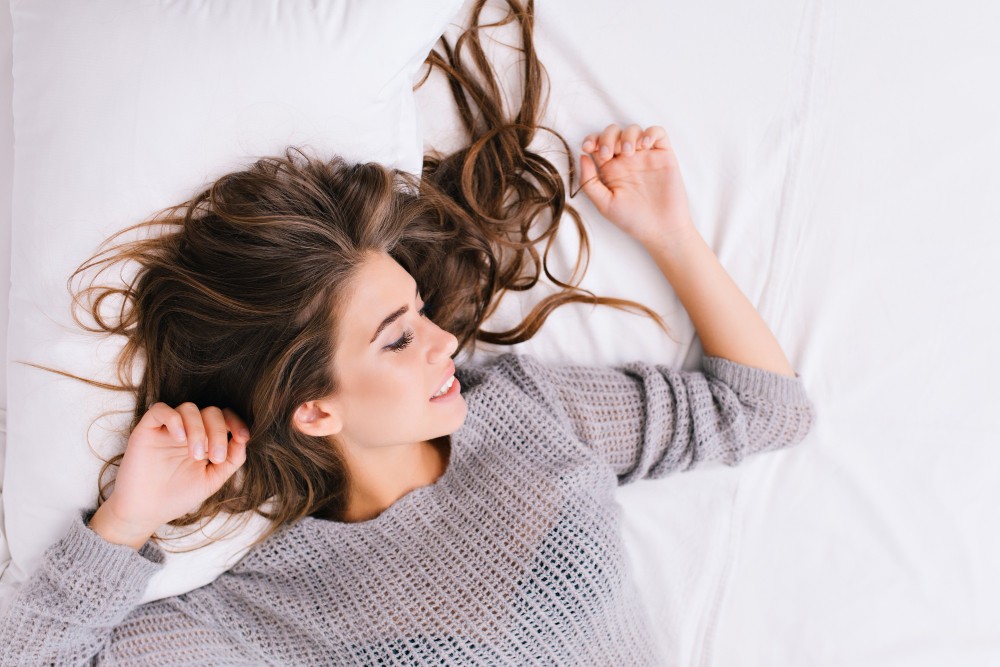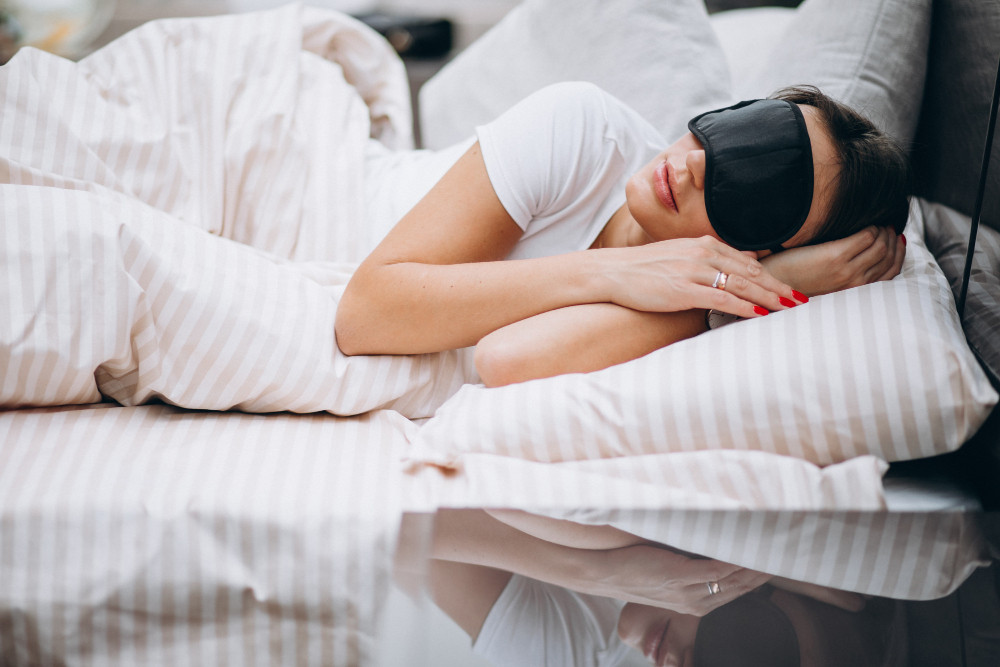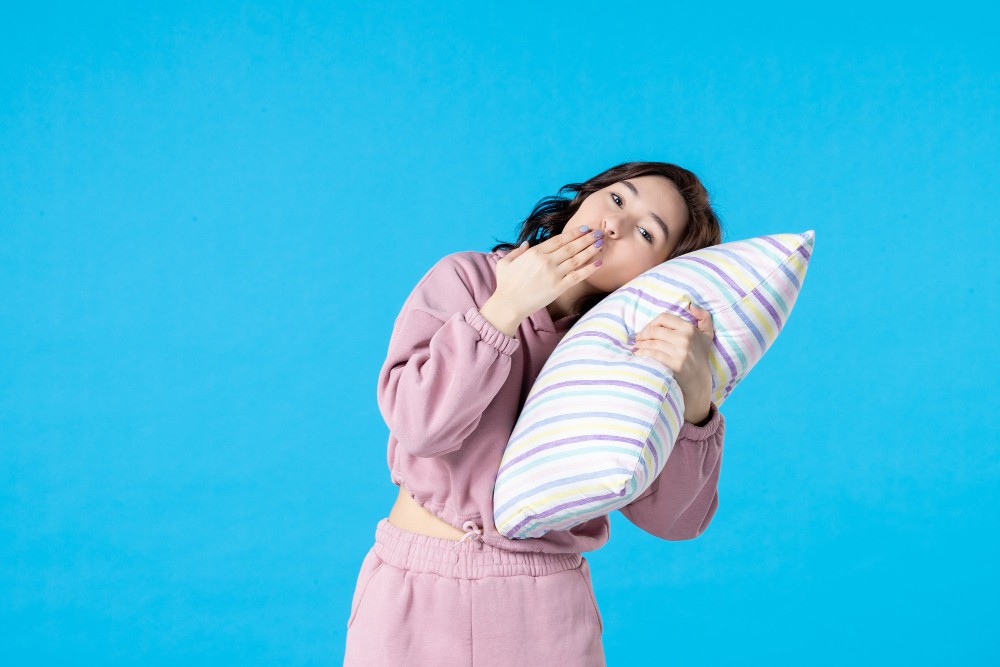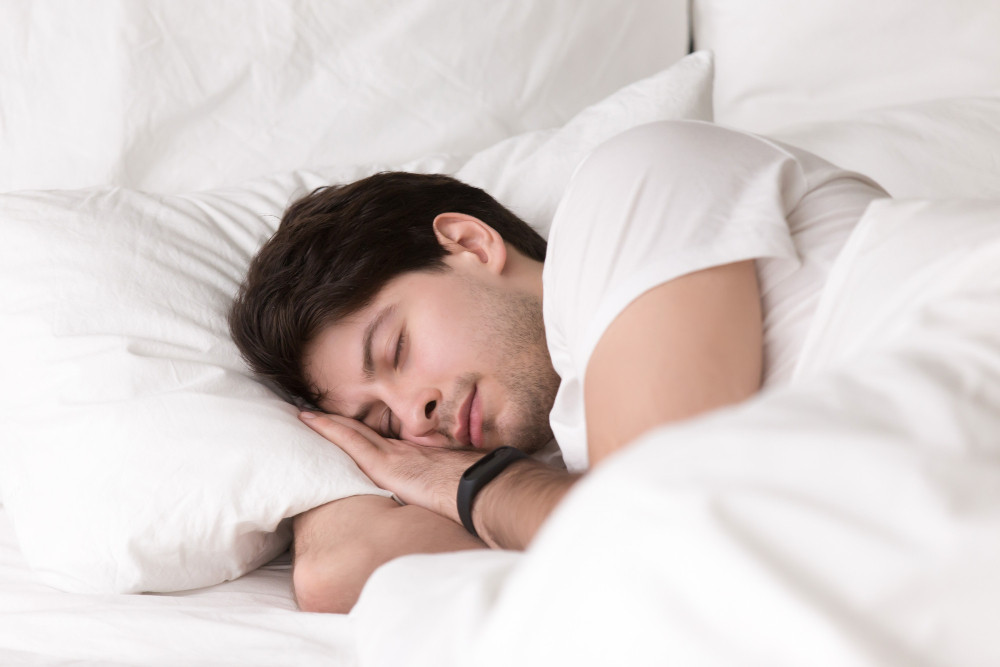Usai menjalani hari yang panjang, Anda mungkin ingin menutup hari dengan keramas dan mandi air hangat. Terkadang, karena sangat mengantuk atau lelah, Anda segera terlelap dan tertidur dengan rambut basah. Banyak mitos yang meyakini bahwa tidur dengan rambut basah menyebabkan flu dan rambut cepat rusak. Bagaimana fakta sebenarnya? Simak ulasannya berikut ini.
Efek Samping Tidur dengan Rambut Basah
Idealnya, tidur sebaiknya dilakukan dalam keadaan rambut kering. Namun jika terlalu lelah beraktivitas, Anda bisa saja tertidur dalam keadaan rambut basah setelah mandi. Salah satu mitos yang beredar mengenai kebiasaan tidur dengan rambut basah adalah sakit kepala dan flu, namun hal ini dibantah oleh para ahli.
Dilansir dari Healthline, tidur dengan rambut basah tidak dapat menyebabkan sakit kepala dan flu. Tidak ada bukti bahwa tidur dengan rambut basah dapat menyebabkan flu. Flu disebabkan oleh virus dan tidak ada kaitannya dengan rambut basah. Virus masuk ke tubuh melalui hidung, mulut, atau mata dan menyebar melalui percikan air liur. Seseorang dapat tertular virus flu ketika menghirup percikan air liur yang terkontaminasi virus saat batuk atau bersin, bukan melalui rambut yang basah.
Baca Juga: Cara Melindungi Rambut dari Kerusakan Akibat Sinar Matahari
Di sisi lain, para dermatologis mengingatkan bahwa tidur dengan rambut basah memang dapat menyebabkan beberapa masalah kulit dan rambut. Beberapa masalah kesehatan yang dapat muncul akibat tidur dengan rambut basah antara lain:
Kerusakan rambut
Tidur dengan rambut basah dapat memicu kerusakan rambut. Saat basah, rambut berada dalam kondisi paling lemah. Posisi tidur yang membolak-balikkan badan meningkatkan risiko gesekan rambut dengan sarung bantal sehingga meningkatkan risiko rambut patah dan kusut.
Risiko rambut patah akan semakin meningkat jika rambut menggunakan produk penata rambut tertentu. Beberapa rambut yang terpapar zat kimia dari produk penataan rambut dapat menghilangkan asam lemak dari kutikula rambut sehingga lebih banyak air yang diserap. Akhirnya rambut menjadi bengkak, melemahkan keseluruhan strukturnya, dan mudah patah jika terkena gesekan saat tidur.
Infeksi jamur di kulit kepala
Selain meningkatkan risiko rambut mudah patah, tidur dengan rambut basah juga dapat meningkatkan risiko infeksi jamur di kulit kepala. Jenis jamur sepeti Malassezia dapat meningkatkan kondisi seperti ketombe atau dermatitis.
Selain jamur alami yang ada pada kulit kepala, bantal yang lembap juga dapat menjadi tempat berkembangbiaknya jamur. Kondisi ini dapat menyebabkan kulit kepala mengalami gatal-gatal atau iritasi.
Jerawat
Tidak ada bukti secara langsung yang menyebutkan bahwa tidur dengan rambut basah akan menyebabkan jerawat. Namun tidur di bantal yang lembap dapat meningkatkan risiko berkembangnya bakteri di sarung bantal yang dapat menyebabkan jerawat. Untuk mencegah jerawat, perhatikan kebersihan sarung bantal dan perlengkapan tidur lainnya dengan menggantinya secara rutin.
Baca Juga: Tips Mengeringkan Rambut agar Rambut Tidak Mudah Rusak
Untuk menghindari kerusakan rambut akibat tidur dengan rambut basah, cara terbaik yang bisa dilakukan adalah dengan mengeringkan rambut dengan tuntas sebelum tidur. Jika Anda tidak sempat mengeringkan rambut dengan hairdryer, Anda bisa mengeringkan rambut semaksimal mungkin dengan handuk microfiber. Anda juga bisa tidur menggunakan hairnet, shower cap, atau mengubah jadwal keramas Anda di pagi hari.
Meskipun tidur dengan rambut basah tidak menyebabkan masalah kesehatan serius, namun hal ini dapat mengganggu kesehatan rambut. Jika Anda memiliki permasalahan kesehatan rambut, Anda bisa berkonsultasi ke dokter kulit dan kecantikan. Anda juga bisa memanfaatkan fitur konsultasi pada aplikasi Ai Care yang bisa diunduh melalui App Store atau Play Store.
Mau tahu tips dan trik kesehatan, pertolongan pertama, dan home remedies lainnya? Cek di sini, ya!
- dr Nadia Opmalina
Hamzeh, Y. (2024). Is It Bad to Sleep With Wet Hair?. Available from: https://www.sleepfoundation.org/sleep-faqs/is-it-bad-to-sleep-with-wet-hair
Miller, K. (2024). Here’s What Can Happen When You Go to Bed With Wet Hair. Available from: https://www.health.com/should-you-go-to-bed-with-wet-hair-8557802
Santos-Longhurst, A. (2019).Is Going to Sleep with Wet Hair Bad for My Health?. Available from: https://www.healthline.com/health/sleeping-with-hair-wet
Reed, M. (2024). Is It Bad to Sleep on Wet Hair? Here's How to Do It Safely. Available from: https://www.byrdie.com/how-to-sleep-on-wet-hair












